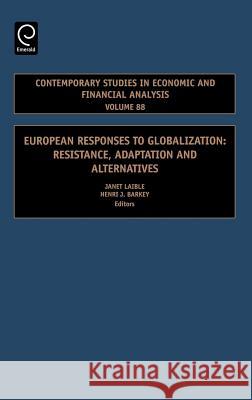European Responses to Globalization: Resistance, Adaptation and Alternatives » książka
European Responses to Globalization: Resistance, Adaptation and Alternatives
ISBN-13: 9780762313648 / Angielski / Twarda / 2006 / 248 str.
This volume brings together contributions from anthropologists, political scientists, economics and policy professionals to explore the institutional, economic and ideational factors that shape the ways in which Europe has adapted to, resisted, and creatively responded to the challenges of globalization. Contributors to this volume were asked to consider the extent to which globalization is driving policy-making in contemporary Europe, and the extent to which Europe itself is influencing the shape, quality and velocity of globalization. Discussions in this volume reveal three main strategies adopted by European political actors in their efforts to respond to globalization: resistance, adaptation (and at times the mutual adaptation between the European and global environments), and the production of alternatives to global norms and practices. Yet, while politicians and citizens may call for European responses to globalization, the contributors to this volume suggest that Europe and globalization already exist in a relationship of reciprocal causality, in which European responses have provoked and will continue to provoke transformations of globalized forces, and that such responses feed back intentionally and unintentionally into domestic politics, economics and culture in Europe. This volume thus makes a provocative and innovative contribution to current academic literatures on globalization across the domains of social science. The contributors come from a variety of backgrounds to give this volume an inter-disciplinary approach. The discussions reveal European strategies to respond to globalization and an analysis of these solutions. This book is an excellent resource for any researcher interested in examining the relationship between Europe and globalization.











